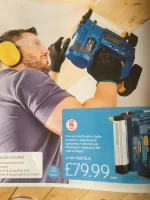If you place two pieces of wood together, then drive a nail in the only pressure between the two pieces of wood is the contact pressure,i.e. next to none.
If you place two pieces of wood together and use either a shanked screw or pre-drill the piece the screw first goes through then drive a screw in the joint is tightened. So you have an interference joint because of the loading on the contact faces, a mechanical joint because of the force provided along the screws length and a pressure joint because of the clamping effect between the two pieces of wood.
To put it in it's simplest terms, nails hold things in place, screws form a joint.
Nails have their place in construction, but they do not and cannot form a joint without being used in conjunction with something else. A notched joint where the nail keeps the pieces in place, or a glued joint where the nail holds the pieces in contact until the glue sets.
Nails are components for a purpose, but as with any other, if they're not used in the correct way then it's just sh1te work.


